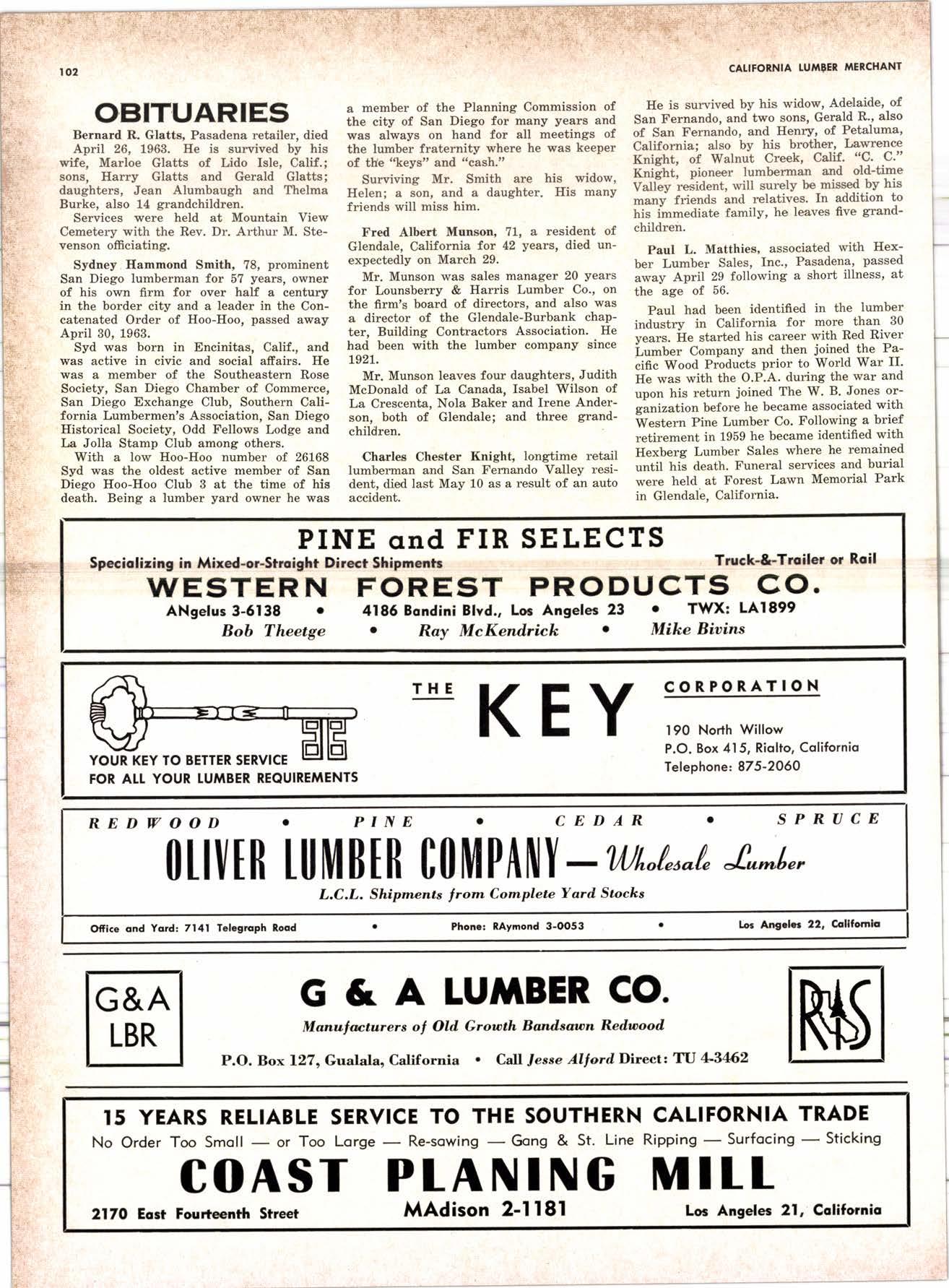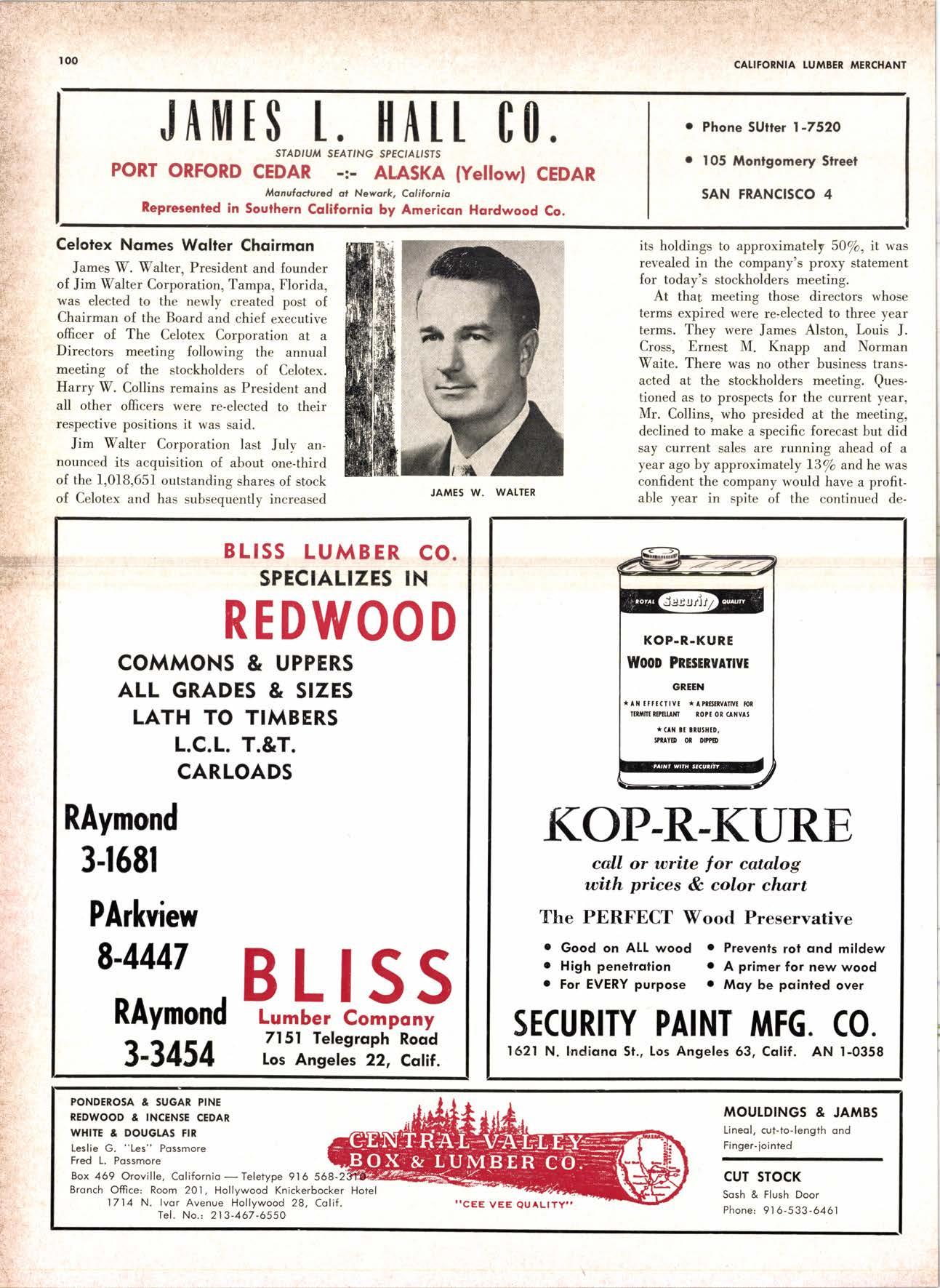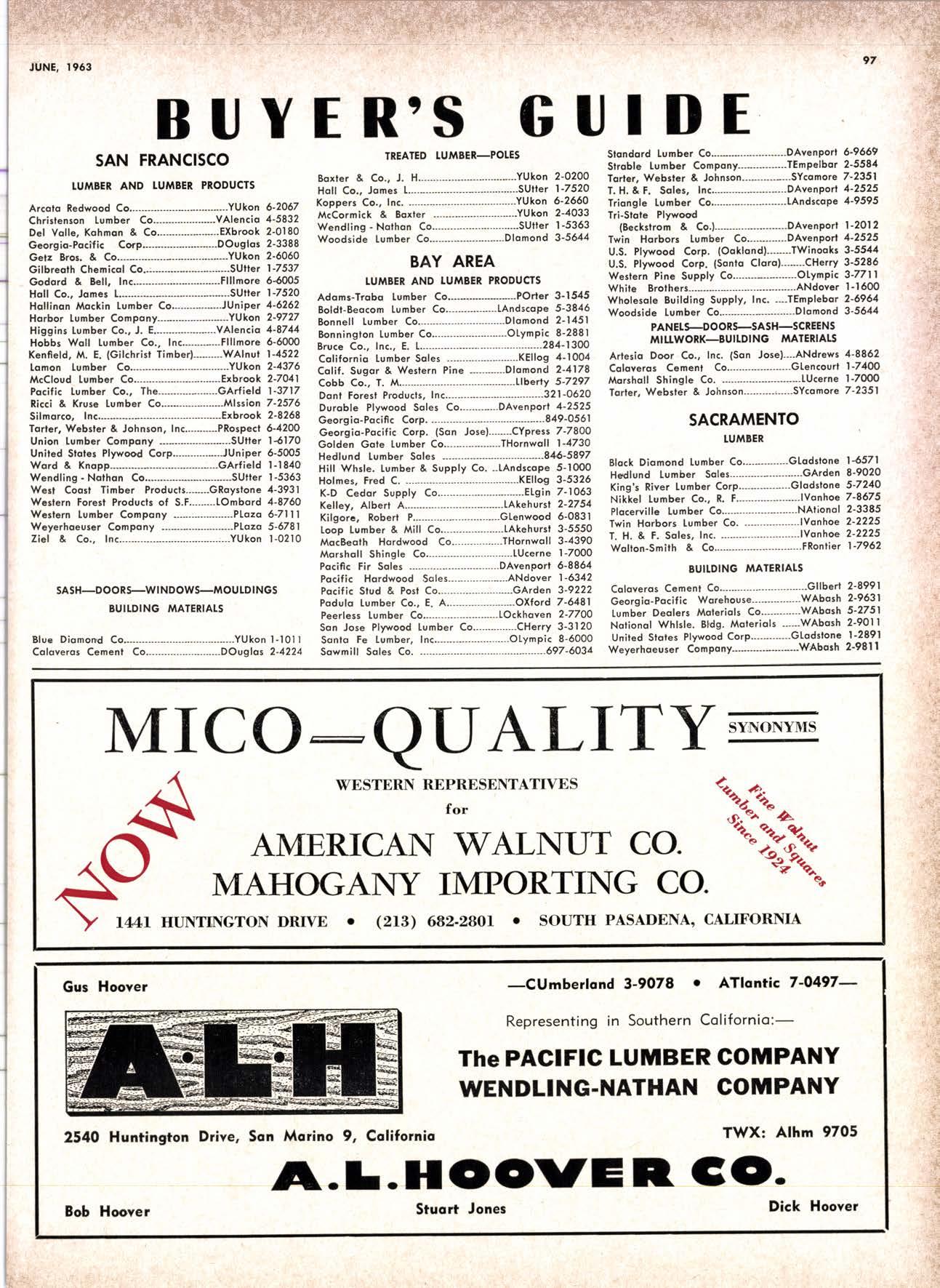
2 minute read
Mergers, Cutbacks
This fine article on one corporatiltn's reaction to the Canadian lumber irnport situation is by Gerry Pratt, Business Editor ol the Oregonian, by whose hind permission it is reprinted, here.
Last fall when Sen. Maurine Neuberger came west to accept the applause of the Lumbermen's Economic Survival Commit. tee for her work in opening up the Jones Act, she met Robert Pamplin, the president of Georgia-Pacific Corp.
The place was one of the smaller dining rooms of the Sheraton Hotel, a dinner of lumbermen and business leaders. After dinner Mrs. Neuberger spoke briefly of her hopes for canceling out the Jones Act to allow American mills to ship on low-cost foreign vessels as the Canadians do. Then Pamplin stood up.
He told the senator that if somethine were not done to make the American milG more competitive "we might as well take our production up to Canada and ship into the states from there. Up there we can use foreign vessels and have the same advantages our government gives the Canadian lumber industry."
It was an extemporaneous speech and because it was spoken softly in a room of louder voices, not many remembered the warning. But these past months the G-P presidentos words have come sharply home.
Georgia-Pacific Corp. announced its plans to merge with Puget Sound Pulp and Paper, a move that would acquire tor C-P not only Vancouver Island timber but two British Columbia sawmills cutting approximately 60 million feet of lumber a year.
The merger move was followed quickly with the unnorn""-"rrt that G-P '*ouli close its Springfield sawmill at a loss of 250 jobs.
Then, in sudden succession, the company announced cutbacks at the Coos Bay sawmill and the Toledo sawmill with the loss of another 135 prime Oregon pay checks.
Almost at the same moment the leadership of tle Lumbermen's Economic Survival Committee received a polite note from
CAI.IFORNIA LUIABEN
Georgia-Pacific that its representative on the committee was resigning. The committee's fight against the Canadian lumber advantages was incompatible with the new interests G-P was takine on,
No one can blame -Pamplin nor G-P, which has contributed more jobs and timber industry development in Oregon than anyone over the past decades. Pamplin has been a sharp critic of the inequities of the Jones Act and the advantages it gives the Canadians; G-P has long been the only timber industry giant to stand with the smaller mills of the survival committee in their fight for equality.
But Georgia-Pacific must compete with Crown-Zellerbach and U. S. Plywood for growth and markets, and Crown and U.S. have vast Canadian timber interests and have been shipping Canadian lumber into the Am,erican markets all along.
And G-P, Pamplin has stated frankly, owes its first obligation to its stockholders. Yet while facing the awkward situation of taking on Canadian lumber production at the same time the company was curtailing Oregon production, the G-P president refused an easy alibi out-the theory that Oregon no longer has saw timber for lumber, only timber for plywood and other high yield products.
He acknowledged that some 40 percent (Continued on Page 92) a--r-IrrrrIrrrI-\tl
. Now...AVAltABtE lN THE WEST I | , ,':'-^--; rrr L,'-^" i'.' I
4^"rtoi 3;nnot Jouun,nJ P*Jrrto I
I I I Jessup Door Company
Aqie Complete
ALL SIZES & STYLES
FUTI TOUVER O TWO PANET LOUVER O RAISED PANET BOTTO}I
| 7s' DOORS
| %' DOORS l7s" BUNDS
I %, BAR DOORS t Vsl BI-FOLD units wiih hqrdwqre ottoched pockoged in individuol corton
WESTERN PINE
GTUED DOWEI CONSTRUCTION
SATIN SMOOTH SANDING
PICIURE FRA}TE STYTING
BI.FOLD SPECIAL FEATURES
JOHNSON HARDWARE INSIAILED
FUtt TOP SUSPENSION
SPRING TOADED HINGES
THREE WAY ADJUSTABTE JAfiIB BRACKET
COMPTETETY PACKAGED-READY TO HANG
Open The Door To Added Soles & Profits With Jessup Louver Doors
AVAITABLE THROUGH YOUR DISTRIBUTOR FACTORY REPRESENIAIIVE
NORTHWAY FOREST PRODUCTS {r
595I EASI TETEGRAPH ROAD, tOS ANGETES 22, (Sonto Ano Freewoy ot Woshington Blvd.l
Phone OVerbrook 5-4000 (oreo code 213)











